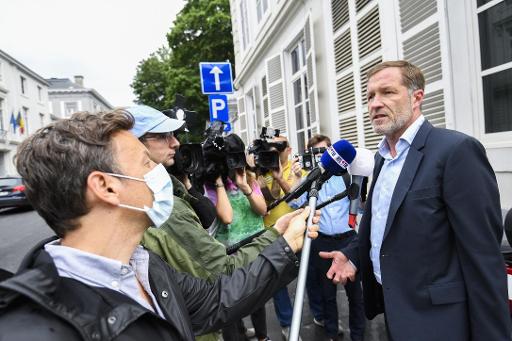A classic tripartite system is the only option that can allow Belgium to avoid "chaos and paralysis" after the current federal government's special powers expire, according to Francophone Socialist Party President Paul Magnette.
The term 'tripartite' is used to describe the three so-called traditional parties - Christian democrats, liberals and socialists.
Prime Minister Sophie Wilmès' current government was granted special powers to deal with the coronavirus crisis. Those special powers end on 27 June.
Related News
- Wilmès faces Belgium’s government formation puzzle
- New liberal party president says no to Vlaams Belang
Magnette and Dutch-speaking Socialist Party president Conner Rousseau consulted with the ten parties supporting the special powers on how to form a federal government and prepare a plan to relaunch the economy. Following those consultations, they presented a government formation plan to Wilmès.
The country has been trying to form a full-fledged government since elections in May 2019, when Flanders voted overwhelmingly to the right, with Wallonia leaning to the left.
"After a year of crisis, we have tested about a dozen formulas but there is always one of the essential parties that does not want it," Magnette told the RTBF.
Magnette and Rousseau have therefore proposed that the existing government coalition - MR and Open Vld (the two liberal parties) and CD&V (the Flemish Christian-democrat party) - be joined by the two socialist parties and the francophone Christian-democrat party cdH, thus forming a classic tripartite government.
Such a government would only have a relative majority of 71 out of 150 seats, while the current government only has 38 seats.
The socialist leaders reportedly see no alternatives to their proposal.
The Brussels Times

